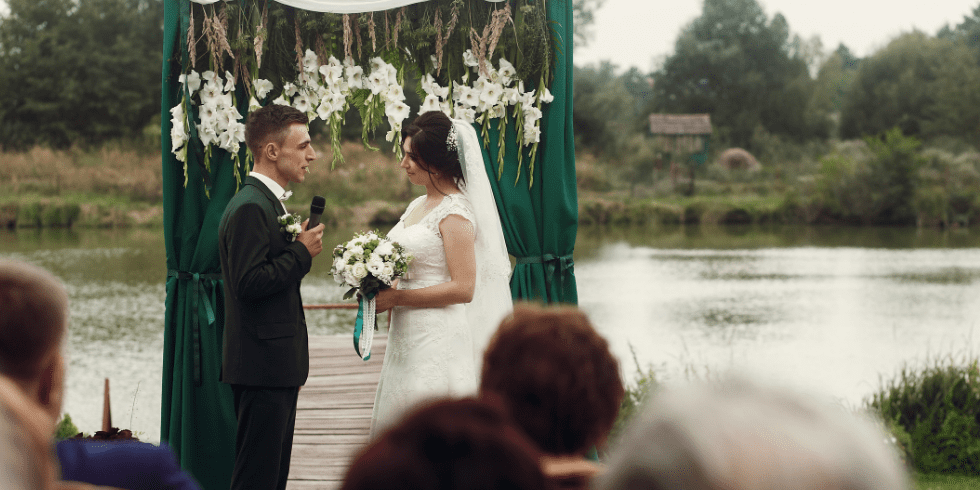A quotation becomes a valid contract when both parties accept the terms and conditions and there is mutual agreement. In the hospitality and events industry, this usually takes the form of written confirmation, a signature or the payment of a deposit. Without clear acceptance, a quotation remains a non-binding proposal.
When does a quotation become a valid contract?
A valid contract comes into effect when the customer unambiguously accepts the quotation. This can be done in various ways: by signing, by written confirmation via email, or by paying a deposit. In the catering and events industry, it is important that you, as an entrepreneur, clearly communicate how acceptance takes place.
The legal conditions for a binding contract are:
- A clear offer (your quotation)
- Unconditional acceptance by the customer
- Mutual agreement on the terms and conditions
- Legally valid performance and consideration
For hospitality and event entrepreneurs, this means that your quotation must be specific about what you deliver, when, and at what price. Vague descriptions can lead to problems later on.

What is the difference between a quotation and a contract?
A quotation is a non-binding proposal that you, as a caterer or event organiser, make to a potential customer. It is not yet a binding agreement. A contract, on the other hand, is a legally binding agreement that comes into effect after both parties have accepted the terms and conditions.
Practical differences in catering:
| Offers | Contract |
|---|---|
| Non-binding proposal | Binding agreement |
| May be revoked | Can only be changed with consent |
| No legal obligations | Legal rights and obligations |
| Valid for a limited period | Valid until execution or termination |
A quotation for wedding catering for 150 people remains a proposal until the customer accepts it. Only then does the quotation become a contractually binding agreement.
What elements make a quotation legally binding?
A quotation becomes legally binding through specific elements that must be clearly defined. These elements ensure that there is no ambiguity about what has been agreed.
Important elements for a binding quotation:
- Clear description of the service (menu, number of people, location)
- Specific date and times
- Exact price and payment terms
- Terms of delivery and responsibilities
- Cancellation policy
- Validity period of the quotation
In the hospitality industry, it is also important to include specific clauses about allergens, special dietary requirements, and what happens in cases of force majeure (such as bad weather at outdoor events).

How long is a quotation valid?
The validity period of a quotation depends on what you include in it. Without specific mention, a quotation is generally valid for a "reasonable period", which in legal terms usually means 14 to 30 days.
For catering and events, we recommend:
- Standard quotations: valid for 14 days
- Seasonal events: shorter term (7 days)
- Large events (weddings): longer term possible (30 days)
- Urgent orders: 48-72 hours
By stating a clear expiry date, you protect yourself against price fluctuations of ingredients and prevent customers from waiting too long to make a decision. This also helps when determining the quotation contract.
What happens when a quotation is accepted?
As soon as a customer accepts your quotation, a binding contract is automatically created. This means that both parties have legal obligations. As a caterer, you are obliged to provide the agreed services, and the customer is obliged to pay.
The process of quotation acceptance creates a contract:
- Delivery obligation for you as an entrepreneur
- Payment obligation for the customer
- Mutual rights in the event of non-performance
- Possibility of compensation for breach of contract
Modern quotation systems simplify this process by enabling online signing. This provides you with clarity more quickly and allows you to start preparations sooner.
How can you protect yourself from legal issues with quotations?
Prevention is better than cure, especially in the dynamic hospitality and events industry. By drawing up your quotations correctly, you can avoid most legal problems.
Practical tips for catering contract law:
- Always use written quotations (e-mail counts too)
- Include clear terms and conditions
- Specify exactly what is and is not included
- State cancellation conditions and costs
- Request written confirmation of acceptance
- Document all changes to the assignment
For larger events, it is wise to request a deposit upon acceptance. This not only confirms the customer's serious intention, but also provides legal certainty about the conclusion of the contract.
Key points about quotations and contracts
Handling quotations and contracts correctly is fundamental for every hospitality and event entrepreneur. A well-organised quotation and event contract process saves time and prevents legal problems.
Summary of key points:
- A quotation only becomes binding after clear acceptance.
- Always specify the validity period of your quotation.
- Provide clear descriptions of your services
- Document all communication regarding changes
- Utilise professional quotation systems for efficiency
Professional quotation management is not only legally prudent, but also helps to build trust with customers. By using modern software, we can help you streamline this process, giving you more time to do what you do best: providing exceptional events and catering.
Do you have any questions about quotations and contracts?
Are you having trouble drafting professional quotations, or do you have questions about how Catermonkey can help you streamline your quotation and contract process? We would be happy to discuss how our platform can best support your business. Whether you want to share ideas, have specific questions, or simply want to explore the possibilities, we are here to help.
Plan your brainstorming session with Catermonkey! During a no-obligation brainstorming session, we will discuss how our solutions perfectly match your business needs. Click here to schedule an appointment right away and discover how you can spend more time doing what you do best: organising unforgettable events and catering.






















